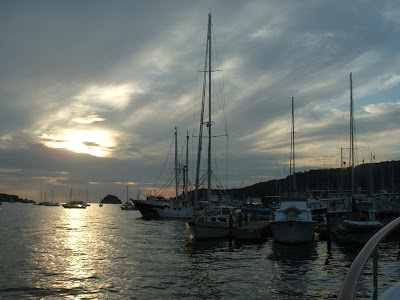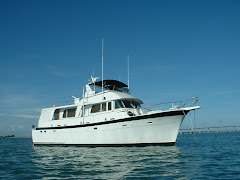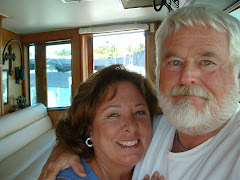At least Susan and I did! When we woke up around 10:00am, we found that Teffany and Carol had already cooked a fabulous brunch of fried chicken, salad, rice and veggies. All we had to do was pour our coffee and dine!
Just after our brunch, the dockmaster from Port Louis Marina came by in his dinghy to invite us to stay at the new marina in the lagoon. We accepted his invitation, and by noon we were tying up to the docks, and being warmly welcomed by three American couples shouting "Happy Thanksgiving!" It has been rare for us to encounter other large trawler-type motor yachts on our travels, so this was both an unusual and especially gratifying surprise. The three couples have been travelling together on their yachts for some time. The welcomed us as fellow "Trawler Trash" and we really enjoyed meeting them.
The docks at Port St. Lous Marina, St. George's Bay, Grenada - KINGDOM in background

Marina landscaping is gorgeous!

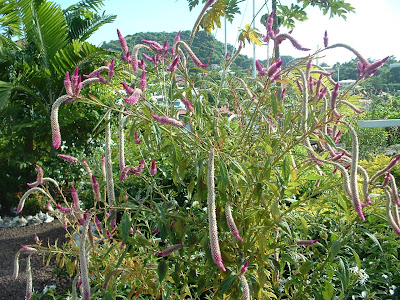
Dockmaster's Office

KINGDOM - Laundry day...
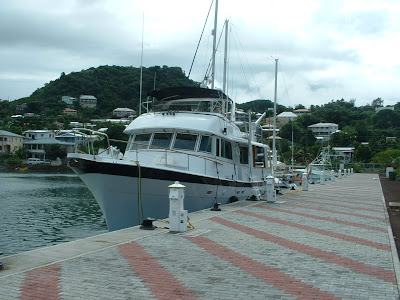

At the bar last night, we met the Captain (Charles) and Stewardess (Marina) of one of the private mega-yachts tied up here in the marina. Charles volunteered to come aboard KINGDOM to verify our electrical problem was solved. He is also a marine engineer, which includes electrician skills. He came aboard this morning, inspected the systems, and pronounced KINGDOM's electrical systems to be properly functioning. He also invited us for a quick tour of his boat, which we will try to do this afternoon.
85' Italian Megayacht "PRINCESS CLAUDIA" - Skippered by our new friend Captain Charles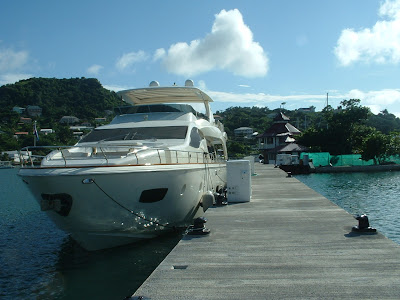

Yesterday, Susan, Brian, Teffany and Carol hiked over the hill to a small beach to try a bit of swimming. The beach they found was small and rocky, so they didn't stay long. I stayed aboard, hoping to research and solve an electrical glitch. We eventually found that the problem lies in the onshore electric supply, and not aboard our boat, thank goodness.
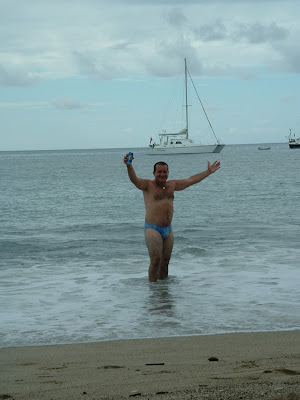
Teffany doing her "Girl from Ipanema" impression...
Grenada has an entirely different feel from Trinidad. Both land and water are much cleaner, folks are quite friendly, and the atmosphere feels much safer. We will remain here until Thursday, when sea conditions are expected to be more favorable for northward travel.
While we are weather-bound here, we will try to take a mini-bus tour of the islands principal attractions; Rain Forest, waterfalls, wildlife (including monkeys), rum factory, etc. We'll report on those later.
In the meantime, we are never really bored. When it gets too quiet, there is always a Domino game ready to break out.
Domino-Master Walt, trouncing Carol and Teffany













